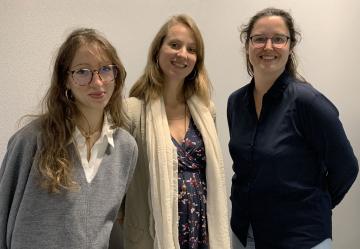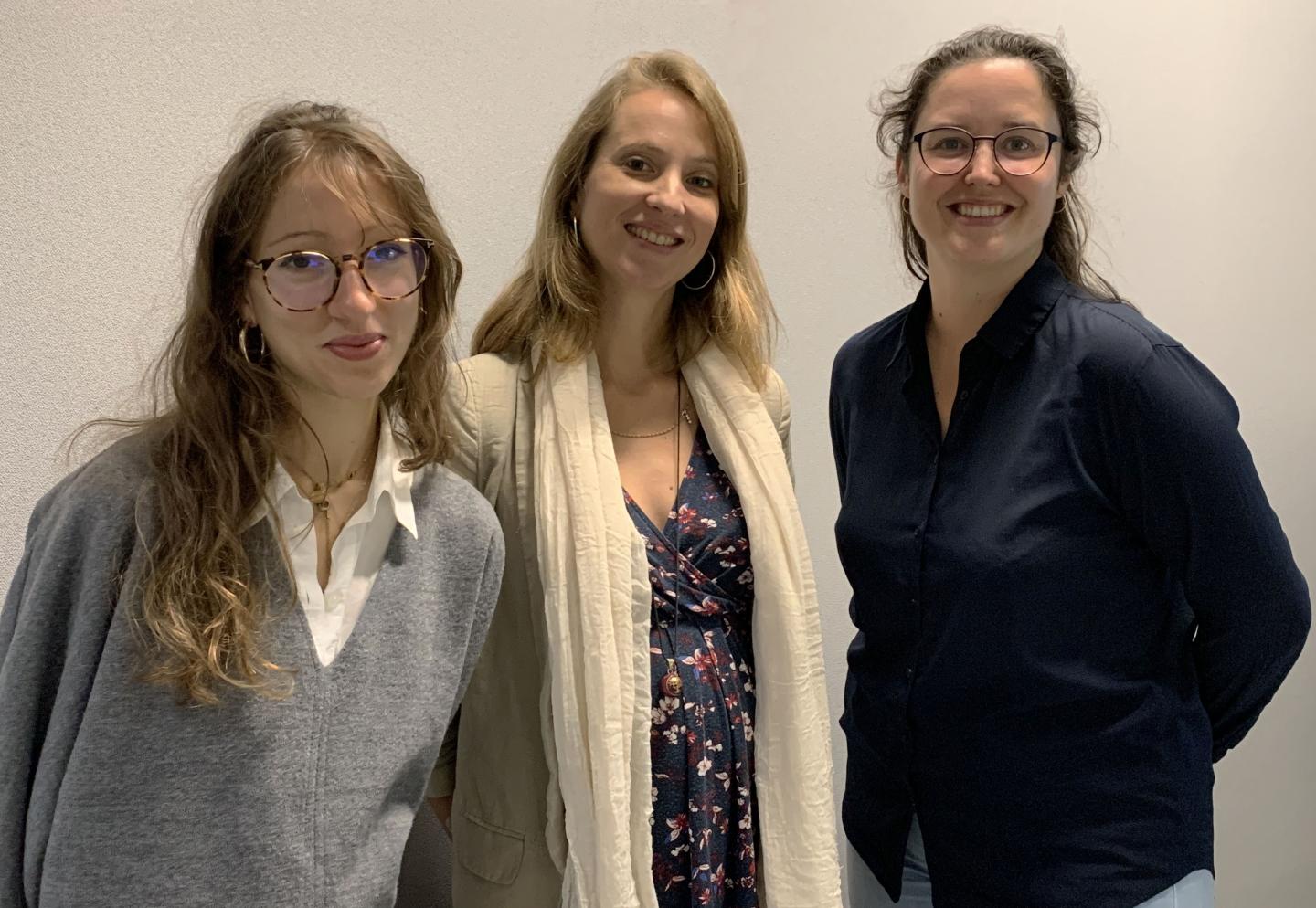
HuManiS research center, EM Strasbourg, and SAGE research center (University of Strasbourg) are collaborating on an Interreg project entitled: "Strengthening SMEs in the food sector in the Upper Rhine by developing sustainable supply chains for vegetarian meals in canteens and retail outlets". The HuManiS team was interviewed, including Alice, a research assistant recruited to take part in this project.
On October 17, 2024, a morning will be devoted to roundtables and debates, bringing together practitioners, partners, and academics. This will be an excellent opportunity to learn more about the project. For further information and registration, click here!
Can you introduce the team behind the project?
Sophie Michel, a member of the HuManiS research center, and Philippe Hamman, a member of the SAGE research center, both from the University of Strasbourg, started the project together. Within HuManiS, Jeanne Bessouat then joined the project, and Coralie Haller will temporarily reinforce the team in 2025. Alice Christiaens has also been recruited as a part-time research assistant.
Can you briefly introduce the project?
The Upper Rhine Sustainable Food project was prepared for over two years as part of a EUCOR project, with the support of the Universities of Haute-Alsace, Freiburg, FNWH, KIT, and RPTU. The project was subsequently awarded Interreg funding for three years (2024-2027) and brings together 29 academic, practitioner, and institutional partners from the Upper Rhine region. The University of Strasbourg is coordinating the project.
This interdisciplinary project aims to combine economics, management, and sociology to study the development of organic and regional channels dedicated to vegetarian meals in canteens and retail outlets and to support SMEs in the Upper Rhine region in this approach.
What are the project's main objectives?
The main aim is to reinforce regional and organic sourcing for canteens and stores, as well as the sustainable practices of each of the players involved in the supply chain, from ecological impact to the social and economic issues of access and fair prices.
Through this project, we aim to strengthen relations between canteens in Alsace and SMEs in the Upper Rhine region to offer a weekly vegetarian meal sourced organically and regionally.
At the same time, we'd like to support local organic stores in their efforts to offer ready-to-eat vegetarian meals sourced sustainably and accessible to the most vulnerable. In this way, cross-border cooperation between stores is a source of new sustainable innovations.
These initiatives aim to support SMEs in the food sector in implementing and strengthening their sustainable practices. They also aim to promote vegetarian options among schoolchildren in canteens and consumers in targeted stores, introducing them to new tastes, reducing food waste and, more broadly, raising their awareness of sustainable agriculture and food.
What are the main research themes you are studying in this project?
The project is interdisciplinary in nature and focuses on inter-organizational collaborations during the transformation of local food systems into sustainable systems. The project is linked to several other themes: innovation, notably through a sustainable business model; the co-construction of a fair price for SMEs and consumers; and sustainable cross-border supply chains.
What benefits could your results bring in the future?
Through the co-construction of strategic plans, concrete experimentation over two years, and the formulation of recommendations, the project will help the SMEs involved to consolidate their business models and cross-border cooperation for a stronger commitment to sustainable practices. It should also reinforce the sustainability of vegetarian, regional, and organic dishes in canteens and stores.
Part of our actions aim to perpetuate and disseminate the results of our experiments in order to democratize the approach and encourage similar initiatives in other canteens, stores, and SMEs in the Upper Rhine and beyond.
The project could also stimulate a broader reflection on agriculture, with academic publications as well as media for dissemination to professionals and the general public.
Alice Christiaens, to get to know you a little better, could you tell us about your academic career and what position you hold today?
I first took postsecondary preparatory classes, then went on to business school. After a gap year, I graduated from Sciences Po Strasbourg with a master's degree in management and public administration.
I currently have two jobs with a common theme, that of food: I work part-time at the University of Strasbourg as a research assistant, while also holding a position as parliamentary assistant to a member of parliament for the Bas-Rhin region.
Why contribute to this project?
I have a strong desire to do research, and I'm naturally interested in questions relating to the fair price of food, food democracy, as well as inequalities and globalization, particularly the pressure exerted by supermarkets. I'm lucky to have joined the project.
What are your long-term personal and professional goals for the coming years?
I'm committed to the Interreg project for another two years, and as a parliamentary assistant until 2027. In the longer run, I'd like to contribute to the development of public policy in favor of food sovereignty, so that the results of my research can be put into practice.
Thank you, Sophie, Jeanne, and Alice, for taking the time to answer our questions!
